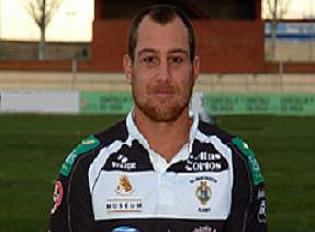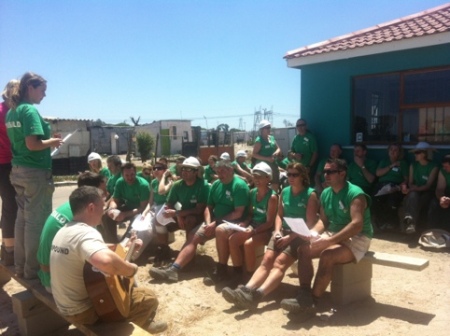SARU’s mission to appoint a Springbok coach is set to take centre stage in the build up to Christmas …
Incumbent coach Peter de Villiers’ contract runs out at the end of December, and should he not stay on (please, oh please), negotiations with other candidates will have to be concluded before the end of the year.
In what I believe to be a good move, a decision was made not to open the position for public application. The man to lead the Boks will instead be identified and approached by the relevant stakeholders.
This will take centre stage at Saru’s executive general council meeting, scheduled for December 1 and 2, where the next steps will be taken in their search for a new Bok coach.
The position is expected to be filled as early as January, provided they can find a suitable candidate willing to take the job.
Michael Mentz of Sapa put together the following profiles of the likely candidates for Bok coach:
Heyneke Meyer:
The most decorated rugby coach in the country, Heyneke Meyer has achieved success at all levels of the game.
More importantly, he has a proven track record of identifying and producing world-class players.
That could all amount to nothing, though, as Meyer has shown a lack of interest in coaching the national team after he was snubbed four years ago when, as the most likely man for the job, the SA Rugby Union went for Peter de Villiers instead.
Retired Springbok legend Victor Matfield wrote in his autobiography that Meyer was the best coach he had ever played under, even though Jake White had led the team to glory at the 2007 Rugby World Cup in France.
Some of the players who grew into world beaters under Meyer’s watchful eye include Bok stalwarts Fourie du Preez, Bakkies Botha, Danie Rossouw and Bryan Habana.
Meyer’s key strength lies in his knowledge of sports psychology.
He is a pragmatic coach who ensures he is surrounded by experts, or specialists, in every aspect of the game, but he also has the courage to be innovative when necessary.
Meyer excels in player management, and with his ability to lay down plans, and stick to them, he is in a league of his own.
Peter de Villiers:
The decision to employ Peter de Villiers ahead of Bulls expert Heyneke Meyer in 2007 outraged most South African rugby fans.
With his experience — much like his predecessor, Jake White — limited to the SA Rugby Union’s junior structures, De Villiers took charge of the most experienced Springbok squad of all time, and subsequently decided that a player driven coaching system would be the most effective.
This would come back to haunt him at the 2011 Rugby World Cup in New Zealand where the Boks were dumped out in the quarterfinals.
During his tenure, the Boks secured a series victory over the British and Irish Lions, and they won the Tri-Nations.
Most of the criticism De Villiers endured at the helm of the natiunal team was a direct result of controversial and often misinterpreted public statements.
When Saru hired Andy Colquhoun as the team’s media manager, De Villiers turned a new page, and he surprised the world with some insightful comments at the World Cup.
He is the only coach confirmed on Saru’s shortlist of candidates, and with a number of others making themselves unavailable, he could either be re-appointed or hired as a caretaker coach until a more suitable candidate is found.
Frans Ludeke:
The only South African coach to have won back-to-back Super Rugby titles, Frans Ludeke has shown, during his time at the helm of Bulls rugby, that he has the aptitude to coach at the highest level.
His well documented philosophy on the importance of focussing only on the team’s next match has been adopted by many other sides in the country.
That same week-by-week dedication contributed to his team’s Currie Cup success in 2009, while at the same time highlighting that he kept abreast of developments on the local front.
Ludeke’s leave of absence was felt during the Blue Bulls’ 2011 season, with Pine Pienaar given a chance to coach at a higher level after the union was restructured.
Ludeke was approached by incumbent Springbok coach Peter de Villiers to join him prior to this year’s Rugby World Cup, and if he is not included in the national team’s immediate plans, he could be a called upon in an advisory capacity.
Allister Coetzee:
A former Springbok backline coach, Allister Coetzee has the right credentials, having formed part of the SA rugby scene at provincial and national level.
Coetzee has a 2007 World Cup winner’s medal, which he won as an assistant to Jake White, but has yet to win silverware at provincial level.
He was also on the four-man shortlist for the Springbok coaching position after White’s departure, when Peter de Villiers was handed the post.
Coetzee has guided Western Province and the Stormers to the finals of both the Currie Cup and Super Rugby competitions.
Toetie, as he is affectionately known, has the respect of fellow coaches and players.
His experience within the successful 2007 World Cup setup, and his ability to handle a critical media fraternity, will hold him in good stead.
Rassie Erasmus:
Regarded as a mastermind in SA rugby, Erasmus is respected as one of the country’s greatest tacticians.
He was famously brought in to help the Springboks as a technical advisor before the start of this year’s Rugby World Cup in New Zealand.
Erasmus won the Currie Cup as head coach of the Cheetahs in 2005 and played a major role in a turnaround for Western Province and the Stormers in recent years in his capacity as director of rugby at the union.
While Western Province have made massive strides, however, becoming a force in Super Rugby and in the Currie Cup, they still don’t have any trophies to show for it.
Erasmus has played down speculation that he will be available to take over the reins of the national side.
Brendan Venter:
A former Springbok centre, Brendan Venter has distinguished himself as one of the leading coaches on the English club rugby scene in recent years.
Venter made an instant impact at London Irish when he coached the side to their first major trophy in 2002.
He had a stint with Saracens as director of rugby, where he was responsible for a resurgence in the club’s fortunes since taking charge in 2009.
Venter coached the team to a Premiership final which ended in defeat in 2010.
He left the club at the end of last year but is still involved as technical director and, combined with Springbok Sevens coach Paul Treu, he guided the SA Premier XV to victory over the EP Kings earlier this year.
A controversial figure during his tenure with Saracens, Venter had a number of run-ins with rugby authorities in England.
It is not clear whether he is available for the Springbok coach’s position, but his rebellious attitude towards authority is likely to make him unpopular with the SA Rugby Union.
Gary Gold:
A former Western Province and London Irish coach, Gary Gold has over the past four years formed part of the Springbok management team as scrum assistant under Peter de Villiers.
While Gold is viewed as one of the most astute rugby brains in the country, his involvement with the recent management setup could be seen as a blemish behind his name.
Gold was forwards coach under Brendan Venter at London Irish when the English club won their first major trophy in 2002.
He later took over the reins of the club, until he accepted a coaching job in 2005, and was also part of the Bok setup as a defensive consultant in 2004 and 2005.
Gold’s experience and knowledge of the Springbok structures could count in his favour.
Pundits, however, might argue that the new Springbok management team should start with a clean slate.
Gert Smal:
A former Springbok forwards coach and World Cup winner, under Jake White in 2007, Gert Smal has deflected to Ireland and is well respected internationally.
Smal has a wealth of international experience as an assistant coach and understands the pressures of rugby at the highest levels.
He also worked under Springbok coaches Carel du Plessis in 1997 and Rudolf Strauli in 2003.
The former Springbok flanker discerned himself as a provincial coach when Western Province won the Currie Cup in 2000 and 2001, and he led the Stomers in four Super Rugby campaigns.
Smal has yet to take up a job as head coach of a national side, and returning to his homeland may appeal to him.
He is, however, still under contract with Ireland until the end of the 2013 season, and it is not clear if he will be keen on taking charge of the Springboks.
John Mitchell:
His recent success with the Lions has made John Mitchell the fans’ favourite to become the Springbok mentor, despite joining the chorus of coaches that have said they are not interested in the job.
His record as All Blacks coach was exemplary and the experience he has gained over the last nine years — after was fired as New Zealand coach following the team’s defeat to Australia in the 2003 World Cup semi-finals — would be to the advantage of any international outfit.
Mitchell is, however, unlikely to abandon a group of players that have completed only two thirds of the three-year programme he and his fellow Kiwi coaches have devised at the Lions.
He might, though, be available in an advisory capacity by the time the Springboks travel to London for the next World Cup.
Ewen McKenzie:
Robbie Deans’ decision to extend his contract as Australia’s head coach for another two years could make the prospect of coaching a foreign international team that much more appealing to current Reds coach Ewen McKenzie.
McKenzie had already proved his worth while in charge of the Waratahs, and went on to transform the Reds into a world-class outfit within two seasons.
Though the chances are minimal that he will take over from Peter de Villiers, it would be interesting to know whether such a bold move was discussed by the decision makers at SA Rugby.




